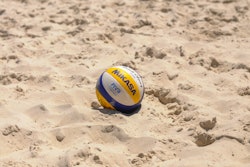|
Copyright 2013 Gannett Company, Inc. All Rights Reserved USA TODAY |
|
August 29, 2013 Thursday
First EDITION |
|
SPORTS; Pg. 6C
|
|
540 words
|
| NCAA enforcement a challenge; Lack of witnesses hinders Manziel case |
|
Dan Wolken, @DanWolken, USA TODAY Sports
|
|
Investigations done by the NCAA often are a morass of diverging details and incongruous stories, credibility questions and winding paper trails. Combine that with the NCAA's lack of subpoena power, and it's not hard to see why the gumshoes in Indianapolis are unable to catch most of the cheating that occurs in college sports and why investigations often seem to take forever. In other words, the work done by the NCAA's enforcement staff usually is complicated. But in the case of Johnny Manziel, it actually turned out to be quite simple. This wasn't even one man's word against another. It was Manziel's word against silence. No matter what anonymous autograph brokers told ESPN about arrangements they had made to pay Manziel for his signature, which is how the story became public this month, it only amounted to suspicion and hearsay if they weren't willing to talk to the NCAA. Needless to say, suspicion and hearsay aren't enough even for the inconsistent NCAA to take Manziel off the field for a significant period of time. One of the biggest misconceptions that floated through the Twittersphere is that other big football schools, and perhaps the Southeastern Conference as a whole, would have been so angry at Manziel being ruled ineligible that it would've increased the momentum for them to break away from the NCAA. The truth is, it's the NCAA's member schools who wrote the rules and want them enforced. If there was proof Manziel took money for signing autographs, suspending him would show the system works. But the NCAA's investigative powers are purposefully limited. In this case, it could compel Manziel to talk, but not any of the autograph brokers who were allegedly involved with him, nor even his "manager" Nate Fitch, a former student at Texas A&M. And if there was nobody to contradict Manziel's story and no paper trail, this wasn't the NCAA backing down from a threat to its existence; rather, it quite simply was the NCAA not being able to make a case. Though suspending Manziel for half of Texas A&M's opener vs. Rice is a noticeable break from NCAA protocol -- suspensions usually are handed out as integers -- and might seem like a silly exercise in saving face, there is logic involved. Per NCAA bylaw 12.5.2.2, a college athlete is supposed to take steps to prevent his or her name or picture from being "used to promote a commercial product sold by an individual or agency" if it is being done without his or her permission. Given the sheer volume of memorabilia he had signed, Manziel could have plausibly admitted to signing items for autograph brokers but denied that he was paid. The only thing that could have gotten him in trouble is if the NCAA had caught him in a lie. Thus, Manziel ends up with what the NCAA on Wednesday termed an inadvertent violation and a rather hollow suspension, which looks like a negotiated settlement that will allow both parties to move on. Given the high-profile nature of the player involved and the fact ESPN's report made the investigation public, it was to everybody's benefit for the NCAA to give Texas A&M a thumbs up or thumbs down before Saturday. But again it illustrated the complex nature of the NCAA's role in making sure players and schools are following the rules. |
|
August 29, 2013
|
Terms and Conditions Privacy Policy



































